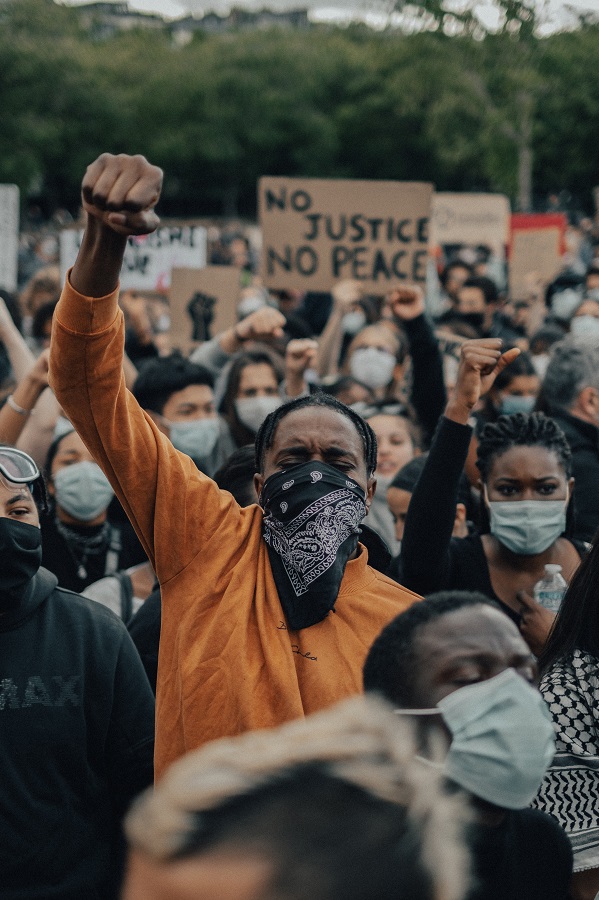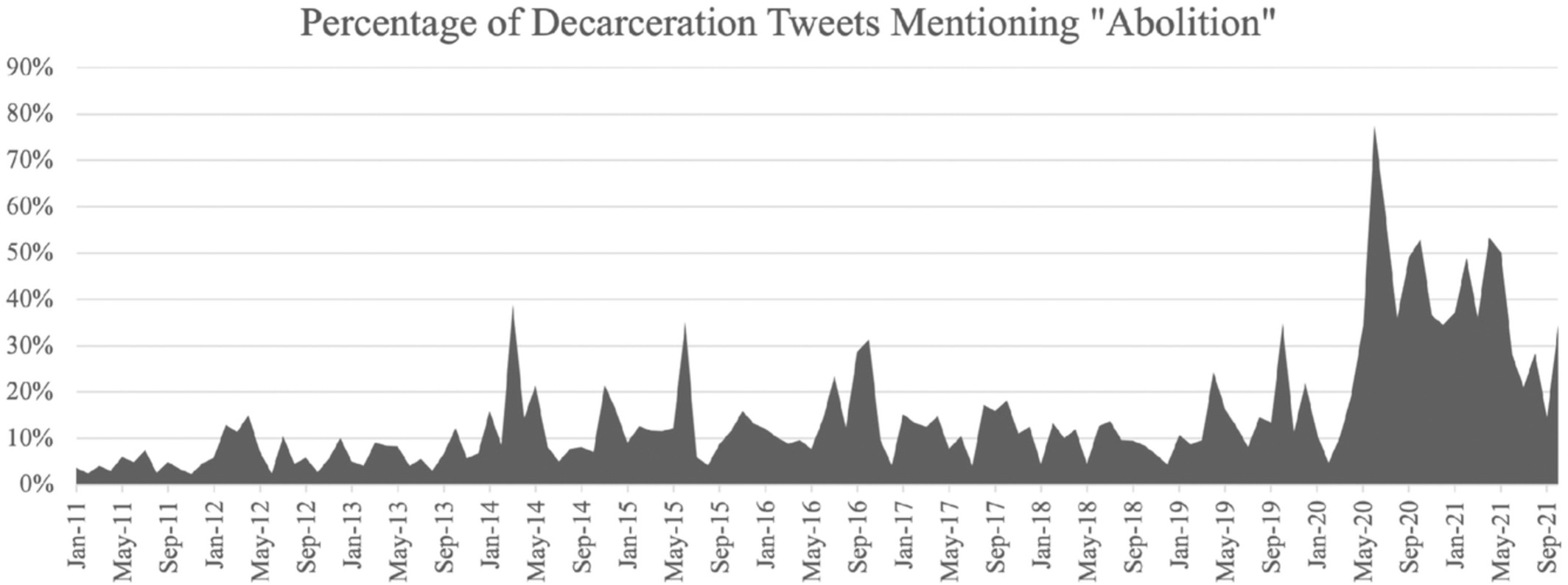Tweeting Abolition in an Age of Mass Incarceration and Social Unrest, Part II: From the Margins to the Mainstream
by Rob Eschmann (@robeschmann), School of Social Work at Columbia University, and Julian G. Thompson (@JulianGThompson), Department of Criminology, Law, and Justice at University of Illinois at Chicago · Published · Updated

Abolition, from police abolition to prison abolition, is largely thought about as being a pretty radical theory. Even amongst critical criminologists who argue against mass incarceration, the torture of solitary confinement, or the racist nature of the over surveillance, policing, and sentencing of Black and Latinx folks, abolition is often seen as an extremist or unrealistic response to a broken system. Identifying concrete ways of fixing problematic aspects of the system is for many preferable than wanting to tear the whole thing down.
For example, more mainstream takes on criminal justice reform may choose to focus on helping “nonviolent offenders” – like those in prison for marijuana related crimes (especially now that weed has been legalized) – or by creating diversion programs—like mental health or drug courts for a segment of the jail population—all while believing that prisons must still exist to protect society from “dangerous” offenders. As discussed in ”Tweeting Abolition Part I: What is Abolition?”, abolitionists do not limit their reform to “deserving” prisoners – those who are thought to be nonviolent or have not been convicted of a crime – nor do they believe that jails and prisons keep us safe. Jails and prisons harm individuals, families, and communities, and society would be safer for all if we eliminated the social conditions and criminalizing practices that make incarceration possible in the first place.
Angela Davis said that prison abolition is not “a negative process of tearing down,” but rather one of collectively “re-imagining institutions, ideas, and strategies, and creating new institutions…that render prisons obsolete.”[1] But how can this collective re-imagining take place, when many people are uncomfortable even discussing the idea of abolition?
In 2018, we began to notice (on our personal social media feeds) what appeared to be a radicalizing of online discussions of prison reform on social media, with far-left and controversial ideas (like abolition) being discussed with increased frequency. We decided to conduct a study to better understand these trends and analyzed over 2 million tweets around criminal justice reform between 2011-2021 (plus an in-depth qualitative analysis of a sample of around 5,000 tweets), in order to understand how discussions of criminal justice reform and abolition had been changing over time. This peer-reviewed paper, “Tweeting Towards Transformation: Prison Abolition and Criminal Justice Reform in 140 Characters” is hot off the presses in Sociological Inquiry, and can be accessed here.
We found that mentions of criminal justice reform have been steadily increasing over the past decade, peaking in 2020 with the widespread uprisings and protests against anti-Black police and vigilante violence, including the high-profile cases of George Floyd, Breonna Taylor, and Ahmaud Arbery. There were fewer than 50,000 tweets around criminal justice reform in 2015, but more than 800,000 in 2020. This may not be surprising for those familiar with the ways The Movement for Black Lives (M4BL) (commonly known as Black Lives Matter (BLM)) has been raising the national consciousness around issues of racism, and how discussions of police violence and brutality cannot be separated from the broader carceral state. The Black Lives Matter platform puts anti-Black violence in historical and structural context, seeing it as being one (of many) manifestations of systemic racism and the continued violent oppression of Black people in the US and worldwide.
What is more surprising is how much of the increase in discussion of prison reform includes discussion of abolition. While less than 25% of all tweets on prison reform mentioned abolition in May of 2019, more than 75% mentioned abolition in May of 2020.

Abolitionists have long sought to change the way crime, punishment, and carceral systems are discussed. Twitter is bringing these discussions to the mainstream in unexpected and powerful ways. As more people discuss abolition as a coherent and well-articulated alternative to oppressive penal institutions, our collective imaginations might reveal a pathway to a better world where prisons are not needed (a pathway that must of course be trailblazed with strategic organizing and action).
It may seem unrealistic to think that America, the country with the most prisoners per capita in the world, will ever be a land without prisons. But it was also once unrealistic to think that slavery, the backbone of the American economy, would be abolished. Today many are disgusted with the legacy of slavery in America. Tomorrow, might we think differently about the penal system?
[1] Davis, A. Y. (2005). Abolition democracy: Beyond empire, prisons, and torture. New York: Seven Stories Press, p 75, as quoted in McDowell, M. G., & Fernandez, L. A. (2018). ‘Disband, disempower, and disarm’: Amplifying the theory and practice of police abolition. Critical Criminology, 26(3), p 377.
For more information and the full list of references, please check out our Open Access publication at Sociological Inquiry:
Eschmann, R., Thompson, J. G., & Toraif, N. (2022). Tweeting toward transformation: Prison abolition and criminal justice reform in 140 characters. Sociological Inquiry. https://doi.org/10.1111/soin.12503




1099-1328/asset/dsa_logo.jpg?v=1&s=e4815e0ca3064f294ac2e8e6d95918f84e0888dd)